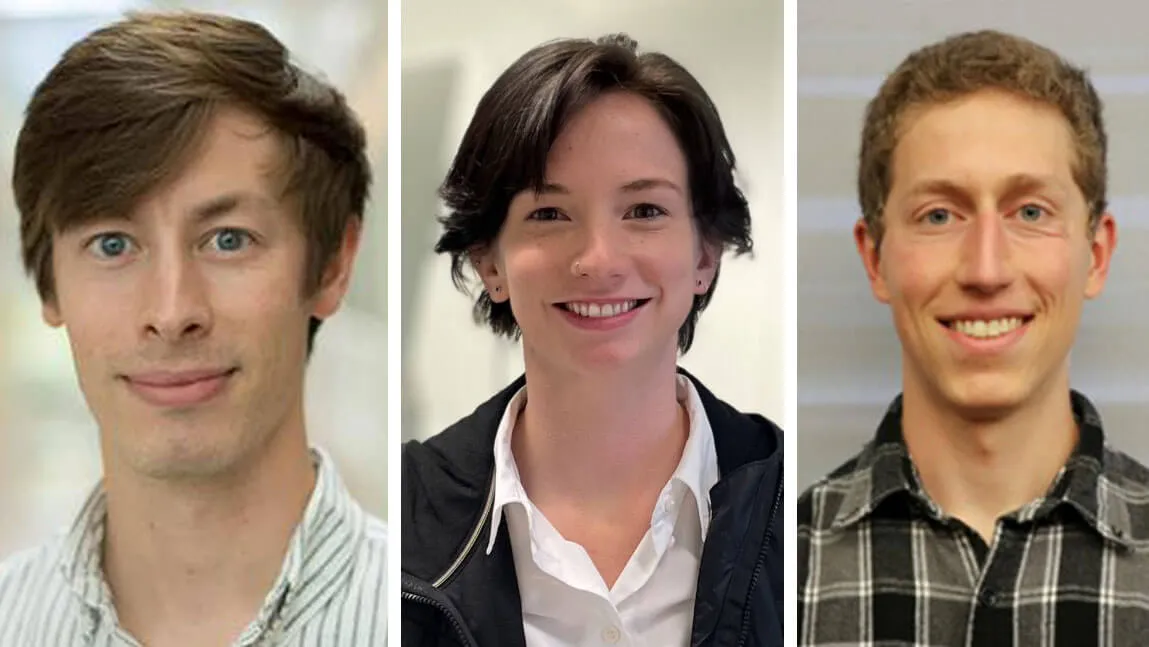The Biomedical Engineering program is delighted to announce the hire of three new faculty members who will be joining the team during the next three semesters.
Dr. Michael Brasino is a Postdoctoral Scholar at Oregon Health and Science University in Portland, Oregon. There, he works in the Knight Cancer Institute’s Cancer Early Detection Advanced Research Center (CEDAR), genetically engineering probiotic bacteria strains for cancer detection. Dr. Brasino’s approach to this work is shaped by his formal Materials Science and Engineering education. Originally from Seattle, he received a B.S. from the University of Washington. He then joined Prof. Jennifer Cha’s lab at UC San Diego for his Master’s degree and moved with the lab to CU Boulder, where he completed his PhD. Dr. Brasino’s work in the Cha lab focused on genetically engineering bacteriophage capsids as a functional biomaterial to create enhanced immunoassays. He then completed a postdoctoral project in Prof. Andrew Goodwin’s lab (also at CU) creating tumor-targeting proteins. Since joining CEDAR, he has collaborated on several other projects, including developing photo-activatable antibodies with Prof. Stuart Ibsen. Dr. Brasino is also an experienced mentor for undergraduate researchers, having organized and coached five annual teams of undergraduates in a premier synthetic biology competition, including the inaugural 2022 team at OHSU. Dr. Brasino will be joining UVM in Fall 2024.
Dr. Kaitlin McCreery is a postdoctoral scientist in the Department of Cell & Tissue Dynamics at the Max Planck Institute for Molecular Biomedicine in Münster, Germany. She received her B.S. in Physics from Duke University, and her M.S. in Mechanical Engineering and Ph.D. in Biomedical Engineering from the University of Colorado Boulder. Her doctoral research focused on investigating biophysical signaling during musculoskeletal tissue morphogenesis and degeneration. Her current work capitalizes on multi-omics data, microscopy, and mechanobiology approaches to investigate how cells integrate mechano-chemical feedback loops to stabilize cell fate and assemble connective tissues. Dr. McCreery will be joining UVM in Spring 2025.
Michael Rosenberg’s long-term goal is to develop novel tools and principles that enhance our ability to personalize gait rehabilitation precisely and efficiently for people with biomechanical, motor, and cognitive impairments. His interdisciplinary research perspective leverages computational and experimental tools to discover neural and biomechanical processes underlying gait dysfunction and rehabilitation responses. Michael is currently an NIH F32 postdoctoral research fellow in the Department of Biomedical Engineering at Emory University and Georgia Tech, where he works with Drs. Lena Ting, Trisha Kesar, and Gordon Berman to characterize post-stroke gait rehabilitation responses using machine learning, neuromechanics-driven experiments, and musculoskeletal simulation. Michael received his B.S. in Mechanical Engineering at North Carolina State University. He completed his NSF GRF- and Gatzert Child Welfare Fellowship-supported M.S. and Ph.D. in Mechanical Engineering at the University of Washington with Dr. Kat M. Steele, developing data-driven models to characterize and predict changes in gait kinematics and muscle activity during walking with ankle exoskeletons. Dr. Rosenberg will be joining UVM in Fall 2025.
